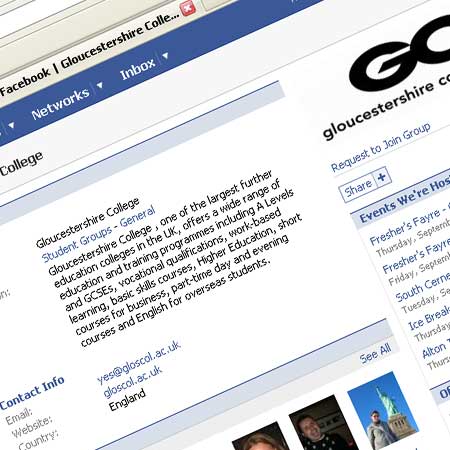Brian Kelly (who writes the UK Web Focus blog) has been asking the question:
Externally-hosted blogs, wikis, etc: (a) valuable solution for institutions which can save effort and resources; (b) to be avoided, as institutions need to be able to manage and tweak their own services or (c) an alternative view (please describe)?
He’s been using Facebook to ask the question and it is a valid question to ask. Should we as institutions take advantage of such services or should we be running our own services.
Some of the answers on Brian’s question make for interesting reading (Facebook login required) and he has been discussing this on his blog.
I use Flickr quite a bit now, finding it useful for not only organising photographs but allowing staff within Gloucestershire College to use them simply and easily. Now if I used an internal service this would probably also meet their needs, however those of you who have checked my Flickr feed will know I also used it quite a bit at ALT-C and delegates (and non-delegates as well) would have been unable to view (and in some cases use) the photographs. From my perspective using a single service makes life easier, there are lots of guides online, also using an external service allows me to use such clever applications like ShoZu.
One potential downside is what happens when staff leave? They can remove the photographs very quickly and easily.
Also though most Web 2.0 services are free, some like Flickr have limitations on the free account. The “pro” upgrade does cost and the question is who pays for that?
There are many more questions. Luckily for us some Universities have already been down this route and have created guidelines, check lists and risk assessment so providing the basis for any college which is looking at using external web services.

